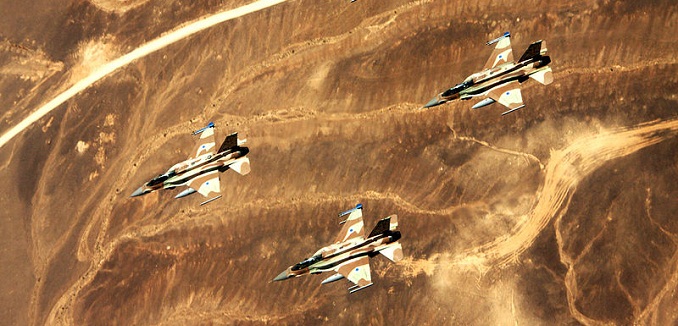Analysts have recently begun analyzing the Middle East as a function of three emerging regional blocs: an Iranian-led bloc that includes Syria and Hezbollah, an extremist Turkey/Brotherhood bloc with which Qatar often aligns, and a U.S.-allied bloc that includes Israel and moderate Arab states. The interactions between these camps vary from country to country – in Syria each battles the other, while in Egypt the Brotherhood and Iran have cooperated – but there has nonetheless been evidence of a broad regional trend toward solidifying blocs.
According to a report aired this week on Israel’s Channel 2, there is now even more evidence:
Israel has held a series of meetings with prominent figures from a number of Gulf and other Arab states in recent weeks in an attempt to muster a new alliance capable of blocking Iran’s drive toward nuclear weapons, Israel’s Channel 2 reported Wednesday. According to the report, Prime Minister Benjamin Netanyahu has been supervising a series of “intensive meetings” with representatives of these other countries. One “high ranking official” even came on a secret visit to Israel, the report said.
The shifting regional patterns were subtly flagged by Prime Minister Benjamin Netanyahu in his recent speech to the United Nations General Assembly:
The report came a day after Netanyahu, in an overlooked passage of his UN speech, noted that shared concerns over Iran’s nuclear program “have led many of our Arab neighbors to recognize… that Israel is not their enemy” and created an opportunity to “build new relationships.” The Arab and Gulf states involved in the new talks have no diplomatic ties with Jerusalem, the report noted. What they share with Israel, it said, is the concern that President Hasan Rouhani’s new diplomatic outreach will fool the US and lead to a US-Iran diplomatic agreement which provides for “less than the dismantling of the Iranian nuclear program.”
Several Gulf states, most prominently and openly Saudi Arabia and the U.A.E., have long called for military action aimed at halting what is widely believed to be an Iranian drive to acquire nuclear weapons.
Those states fear that Iranian nuclear acquisition will allow the Islamic republic to press its territorial claims in the region – Iran insists that several Arab-controlled islands and the entire nation of Bahrain are Iranian – and to provide immunity to a range of Iran-backed insurgent groups seeking to destabilize Arab governments.
[Photo: Matanya / Wiki Commons]




